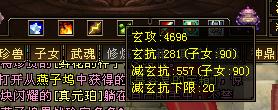big deal 既可以表示”大事“,也可以表示”没什么大不了的事“,它是一个习惯用语,经常用于否定句中,人们经常用“It's not a big deal”或"It's no big deal“,寓意:

important thing
重要的事
major concern
主要问题
serious issue
严重问题
used to tell that something is of little outcome or less importance (not a big deal)
用来表示某件事没有什么结果或不太重要

something you say to show that you do not think that something is either important or interesting (no big deal - negative usage)
你所说的表明你认为某件事不重要或无趣(没什么大不了的-消极用法)
例如:
Winning a scholarship is no big deal for him.
获得奖学金对他来说没什么大不了的。
解析:动名词短语 winning a scholarship 在句中作主语;no 相当于 not a.
I have been selected as a software engineer in Microsoft. It's a big deal for me and my family.
我入选微软的软件工程师。这对我和我的家人都是件大事。

Even though I was very upset about losing the race no one else thought it was a big deal.
尽管我对输掉比赛感到很不安,但没有人认为这是一件大事。
解析:even though 引导的让步状语从句,从句的内容往往是真实的,而 even if 引导的让步状语从句的内容往往是假设的,例如:
Even if the weather's awful there's lots to do.
即使天气很差,也还有好多事情可做。
Losing at cards is not a big deal, but some people take it very seriously.
打牌输了不是什么大不了的事,但有些人很认真。

当表示”没什么了不起的“时,常常独立成句,例如:
'You'll miss The Brady Bunch.' —'Big deal. '
“你会错过《布雷迪一家》的。”——“那有什么了不起。”
"I ran five miles this morning." "Big deal! I ran ten."
“我今天早上跑了五英里。”“有什么了不起的!我跑了10英里。”
,




